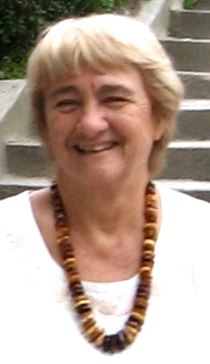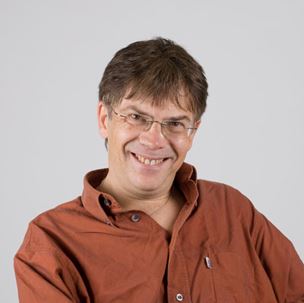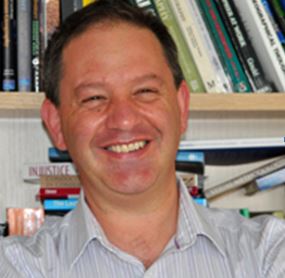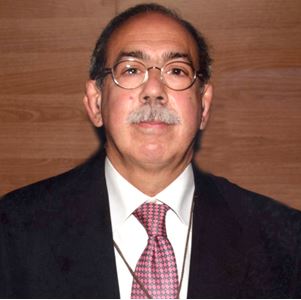KEYNOTE SPEAKERS







Professor Craig A. Anderson
Distinguished Professor at Iowa State University and Director of Center of the Study of Violence
Dr. Anderson currently teaches a graduate course on Social Psychology Theory, and undergraduate and graduate courses on Human Aggression.
Dr. Anderson is widely considered a leading scholar on the psychology of aggression. His General Aggression Model is widely used to guide theoretical research as well as more applied studies of aggression and violence. His research in recent years has focused on media violence effects, especially violent video games, but also has revealed positive effects of prosocial video games, and the psychological processes that underlie both positive and negative effects of various types of entertainment media. His aggression research has appeared in all of the top psychology journals, including the top public policy journal.
He has co-authored the media violence public policy statements of numerous scientific organizations, including the American Academy of Pediatrics, the American Psychological Association, the International Society for Research on Aggression, and the Society for the Psychological Study of Social Issues. He regularly consults with governmental and non-profit child advocacy groups on media violence issues. He has testified on violent video game effects before the U.S. Senate, and has served as an expert witness in criminal and civil court cases. His work has had a major impact on public policy at local, state, national and international levels.
In 2007, Dr. Anderson founded the Center for the Study of Violence, and currently serves as its Director. He has served on the Executive Council of the International Society for Research on Aggression (1997-2006), and was elected President of the Society in 2008.
Dr. Anderson is the author of over 200 scientific articles and chapters, and was the lead author on the groundbreaking book Violent Video Game Effects on Children and Adolescents. Theory, Research and Public Policy (Oxford University Press, 2007). According to Google Scholar, his research has been cited over 22,000 times, and is ranked 2nd worldwide among aggression and among violence scholars in citation impact. For other key publications since 2000 see: link.
More information about professor Anderson.
Professor Donatella Abbate Badin
Professor Donatella Abbate Badin (University of Turin) is active in the field of teaching and research on English and Irish literatures, travel literature and Imagology.
She is a member of the Board of Directors of EFACIS and of the editorial board of Irish Studies in Italy and holds seminars for the PhD programme of the University of Turin. She has written numerous scholarly essays and is the author or editor of several essays and books regarding nineteenth and twentieth century literature in English (Gerald Manley Hopkins, Charles Dickens, Lady Morgan, Thomas Moore, Thomas Kinsella, D.H. Lawrence, Sean O’Faolain, Elizabeth Bowen, Sheridan Le Fanu, Charles Maturin). She has participated in and organized several international conferences and edited the proceedings thereof. In the last few years she has dedicated herself to research on Lady Morgan (née Sydney Owenson, 1776-1859) whose travel book, Italy, she has edited for Pickering and Chatto (2010) and about whom she has published numerous essays and three books, most notably Lady Morgan’s Italy: Anglo-Irish Sensibilities and Italian Realities (Bethesda: Academica Press 2007).
Her present research concern is the representation of Italy in nineteenth and twentieth-century English and Irish literatures. She is presently coediting a book of essays on Irish personalities in Italy in the nineteenth century and authoring herself a book whose tentative title is The Rrepresentatiosn of Italy in Irish Literature.
Professor Brad J. Bushman
Dr. Brad J. Bushman is a professor of communication and psychology at The Ohio State University, where he holds the Margaret Hall and Robert Randal Rinehart Chair of Mass Communication. In the summer he is a professor of communication science at the VU University Amsterdam, the Netherlands.
He studies the causes, consequences, and solutions to the problem of human aggression and violence. His research has challenged several myths (e.g., violent media have a trivial effect on aggression, venting anger reduces aggression, violent people suffer from low self-esteem, violence and sex sell products, warning labels reduce audience size). (One of his colleagues calls him the "myth buster.")
He has over 160 publications in peer-reviewed journals, including in the top scientific journals (e.g., Science, Nature, PNAS). His research has been featured on television (e.g., ABC News 20/20, CBS Evening News, PBS NewsHour,O'Reilly Factor), on radio (e.g., BBC, NPR, CBC) in magazines (e.g., New York Times Magazine, Newsweek, Wired), and in newspapers (e.g., New York Times, Wall Street Journal, USA Today).
He received the Ig Nobel prize in psychology for his study Beauty is in the eye of the beer holder’: People who think they are drunk also think they are attractive (2013). He also received the Distinguished Lifetime Contribution to Media Psychology and Technology from the American Psychological Association (2014).
Professor William Hughes
William Hughes is Professor of Gothic Studies at Bath Spa University, an immediate Past President of the International Gothic Association, founder editor of the internationally refereed journal Gothic Studies, a prominent member of the editorial board of MUP's International Gothic Series and one of the two editors of the Edinburgh University Press Companions series.
His sixteen published books include Beyond Dracula: Bram Stoker's Fiction and its Cultural Context (2000), Bram Stoker: A Bibliography (1997), annotated student editions of Stoker's faux vampire novel The Lady of the Shroud (2001) and Dracula (2007), and reader's guides to Dracula for Palgrave (2009) and Continuum (2009). His most recent solo publication is The Historical Dictionary of Gothic Literature (2013) and his seventeenth book, That Devil’s Trick: Hypnotism and the Victorian Popular Imagination will be published in January 2015.
As a co- editor he has published, with Andrew Smith, Empire and the Gothic: Studies in the Ideology of Genre (2003), Queering the Gothic (2009), The Victorian Gothic (2012) and Ecogothic (2013), as well as the authoritative two volume The Encyclopedia of the Gothic (2013), with Andrew Smith and David Punter.
Professor Hughes is a founder member of the International Gothic Association (Joint-President from 2009 to 2013), a member of British Association for Victorian Studies and of The Bram Stoker Society. He is a member of the Editorial Advisory Boards of Gothic Studies, Le Fanu Studies, Dissections, Journal of Literature and Science, Asian Journal of Literature, Culture and Society, and Journal of Contemporary Literature.
Dr. Duncan Light
Dr. Duncan Light lectures on the politics of tourism at Bournemouth University, UK.
He is a cultural geographer whose research explores the inter-relationships between tourism, identity, memory and landscape. Much of his research is focussed on Romania, a country he has visited regularly since 1995. He has published many articles in journals such as Transactions of the Institute of British Geographers, Annals of the Association of American Geographers, Tourism Geographies and Journal of Historical Geography.
He is also regularly invited to contribute chapters to edited volumes. For the past decade he has been studying ‘Dracula tourism’ in Romania and is the author of The Dracula Dilemma: Tourism, Identity and the State in Romania (Ashgate, 2012).
Professor Tullio Scrimali
Professor Tullio Scrimali teaches Clinical Psychology at University of Catania and is Director of ALETEIA Clinical Center and ALETEIA International, European School of Cognitive Therapy.
He is Physician, Psychologist, Psychotherapist, specialised in Psychiatry at the University of Milan.
Dr. Scrimali founded and he is the Director, at the Psychiatric Clinic of the University of Catania, of the first Laboratory of Cognitive Psychophysiology and Biofeedback started in Italy. He is full researcher and Associate Professor of Clinical Psychology at the University of Catania. He founded and actually heads ALETEIA International, European School of Cognitive Therapy (www.aleteiainternational.it).
He has been carrying out and still carries out research and didactic activities in several foreign countries, among which the United States, Canada, Mexico, Brazil, Argentina, Uruguay, England, Spain, France, Germany, Denmark, Sweden, Finland, Lithuania, Greece, Serbia, Romania, Poland, China, Morocco, Egypt and Japan. He is the author of 155 scientific works and several monographs.
Dr. Scrimali is the author of several volumes such asCognitive Therapy Toward a New Millennium (Edited together with Grimaldi L.). Kluver, New York, 2001, Entropy of Mind and Negative Entropy. A cognitive and complex approach to schizophrenia and its therapy. Karnac, London, 2008,Neuroscience-Based Cognitive Therapy. New methods for assessment, treatment and self-regulation. Wiley, Chichester, 2012.
Dr. Andre Krauss
Research fellow at the Institute of Sociology, Romanian Academy, Bucharest, Romania
Dr. Krauss, a published art historian and media psychologist, holds two doctorates in the History of Art from the University of Gothenburg, Sweden and in Psychology from the University of Bucharest, Romania.
In Israel, Dr. Krauss taught aesthetics, history of art and visual communication at the University of Tel Aviv, the Art Academy in Jerusalem and the Institute of Technology and Design in Ramat Gan. In Romania, Dr. Krauss lectured as guest professor at the Aurel Vlaicu University of Arad and at the DPPD, West University of Timisoara.
With over 30 years of academic activities in a variety of countries such as in Sweden, Israel, USA and Romania, Dr. Krauss has an understanding of media reception and effects in different cultural environments.
Dr. Krauss brings a distinct cross disciplinary approach to media psychology by combining his knowledge of visual literacy and analysis of visual communication with the understanding of its emotional impact on the audience.
Dr. Krauss established the centers for media studies at UAV University in Arad and also at the UV Timisoara. In collaboration with Dr. Aaron Sell, from the Center for Evolutionary Psychology at the University of California, Dr. Krauss conducted experimental research with students at major universities in Romania such as, Alexandru Ioan Cuza in Iasi, West University of Timisoara, University of Bucharest, and Babes-Bolyai University in Cluj-Napoca.
Presently, Dr. Krauss’ research interests range from the aesthetics of high and pop culture, audience reception research, and to the continued blurring of the distinction between fiction and reality in a media dominated by entertainment.